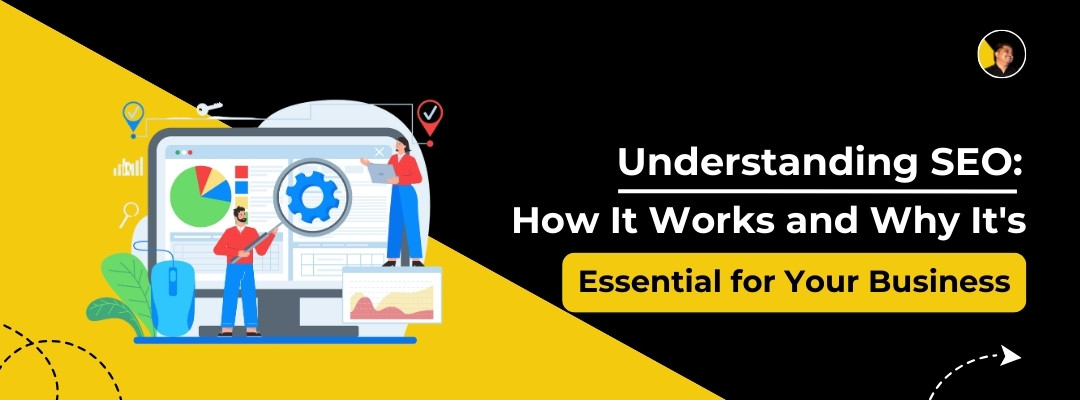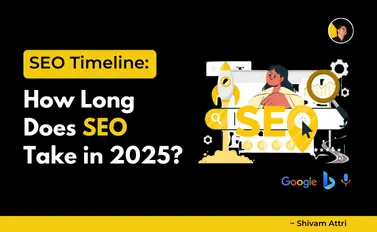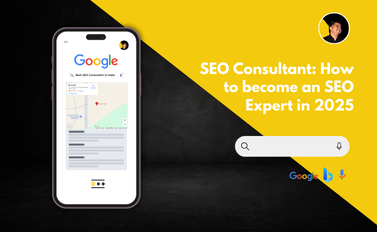SEO Expert in India – Shivam Attri

Understanding SEO And Why Its Important For Businesses In 2024
In the vast expanse of the internet, having a strong online presence is more important than ever if you want your business to thrive. Search Engine Optimization, or SEO, is a powerful tool that helps make your website easier to find on search engines like Google. Essentially, it’s about making your site more visible when someone searches for something related to what you offer. The more visible your website is, the more people can find it, which leads to more traffic and, ideally, more conversions—from visitors to customers.
Here’s a simple way to think about it:
Imagine your website is a shop in a huge shopping center. SEO is like the signs and directions that help people find your shop. Without good signs (SEO), your shop (website) might be hard to find, and not many customers will come through the door. But with clear, well-placed signs, more customers can find you easily, browse your products, and make purchases. This is exactly what SEO does for your website—it guides more potential customers to your site by making sure it shows up higher in the search results when they’re looking for what you offer.
What Is SEO?
SEO is the practice of optimizing your website to rank higher in search engine results, making your site more visible to people who are using search engines to find solutions that your business provides. This involves a mix of techniques that improve your website’s internal and external factors to achieve a higher ranking.
How Does SEO Work?
Search Engine Optimization (SEO) enhances your website’s attractiveness to search engines like Google, making it more likely to appear higher in search results. Here’s an expanded breakdown of the key components that influence SEO:
The Benefits of SEO for Businesses, Startups, and E-commerce Ventures
1. Content Quality And Relevance
Visibility and Branding:
High-Quality Content:
Creating informative, engaging, and well-researched content is crucial. This includes detailed articles, helpful guides, and compelling visuals that keep visitors interested and encourage them to stay on your site longer.
Relevance
The content should directly address the interests and needs of your target audience, providing answers and solutions to their questions and problems.
Keyword Integration
Using the right keywords throughout your content helps connect your site to relevant searches. This means incorporating both broad and niche keywords naturally within your text.
2. Keyword Optimization
Research
Identifying the right keywords involves understanding what terms your target audience uses when searching for products or services like yours.
Strategy
Incorporate these keywords into your site’s content strategically, without overstuffing, to improve visibility and relevance in search results.
Tools
Utilize SEO tools like Google Keyword Planner or Ahrefs to find keywords with high search volumes and low competition.
3.User Experience (UX)
Navigation
Ensure your website is easy to navigate, with a clear structure that leads visitors naturally from one page to another.
Strategy
Incorporate these keywords into your site’s content strategically, without overstuffing, to improve visibility and relevance in search results.
Tools
Utilize SEO tools like Google Keyword Planner or Ahrefs to find keywords with high search volumes and low competition.
4. Backlinks
Quality Over Quantity
Gaining backlinks from reputable, high-authority websites is more beneficial than numerous links from lesser-known sites.
Natural Link Building
Incorporate these keywords into your site’s content strategically, without overstuffing, to improve visibility and relevance in search results.
Monitor Your Link Profile
Regularly check your link profile to avoid penalties from Google for unnatural linking practices.
5. Technical SEO
Site Architecture
Gaining backlinks from reputable, high-authority websites is more beneficial than numerous links from lesser-known sites.
Meta Tags
Use meta tags effectively to provide search engines with information about your pages.
Security
Implement HTTPS to secure your site’s connection and gain trust from both users and search engines.
Developing a Comprehensive SEO Strategy
To develop a robust SEO strategy, you need a deep understanding of your audience, market trends, and search engine operations. Here are the key components:
On-Page SEO
Header Tags
Use header tags (H1, H2, etc.) to structure your content effectively and highlight key information.
Content Optimization
Ensure all content is optimized for both search engines and users, balancing keyword use with natural readability.
Meta Data
Implement HTTPS to secure your site’s connection and gain trust from both users and search engines.
Header Tags
Use header tags (H1, H2, etc.) to structure your content effectively and highlight key information.
Off-Page SEO
Backlink Building
Focus on acquiring high-quality backlinks that enhance your site’s authority and relevance.
Social Media Engagement
Utilize social media platforms to increase visibility and direct traffic to your website.
Influencer Partnerships
Collaborate with influencers to extend your reach and credibility.
Technical SEO
Mobile Optimization
Continuously ensure your website is fully optimized for mobile devices, providing a seamless experience for users.
Speed Enhancements
Regularly update your website’s technical aspects to improve loading speed and overall performance.
Accessibility
Make sure your website is accessible to all users, including those with disabilities, to enhance user experience and compliance.
By focusing on these detailed elements of SEO, you can significantly improve your website’s ranking in search results, attract more traffic, and achieve higher engagement and conversion rates. Remember, SEO is a continuous process that requires ongoing adjustments and optimizations to maintain and improve your search engine rankings.
Measuring SEO Success
To measure the effectiveness of your SEO efforts, consider the following metrics:
Traffic Volume
Look at the overall traffic and the quality of traffic coming to your site.
Engagement Metrics
This includes time on site, pages per session, and bounce rate.
Conversion Rates
The ultimate goal of SEO is to improve conversions, whether they are sales, leads, or any other defined objective.
SEO Tools and Best Practices
Conversion Rates
The ultimate goal of SEO is to improve conversions, whether they are sales, leads, or any other defined objective.
Engagement Metrics
This includes time on site, pages per session, and bounce rate.
Traffic Volume
Look at the overall traffic and the quality of traffic coming to your site.
Leverage tools like Google Analytics for tracking success, Google Search Console for insights on how your site appears in search results, and various SEO platforms for keyword research and competitive analysis.
The Future of SEO
SEO is continually evolving with new technologies and algorithms. Staying updated with the latest trends and algorithm changes is crucial for maintaining and improving your search engine rankings.
Why SEO is Important for Businesses
Investing in SEO is essential for any business looking to grow online. By improving your website’s SEO, you increase your visibility, which is directly linked to increased traffic and potential conversions.
By taking a proactive approach to SEO, you can ensure that your website not only meets the current demands of search engines but is also prepared for future developments in the digital landscape. This comprehensive approach to SEO will help secure your position at the forefront of your industry online. To excel in SEO, you need a trusted partner—let’s achieve greatness together. As your best SEO consultant, I’m ready to take your business to new heights. Connect now and let’s start this journey!
Frequently
Asked Questions
SEO, or Search Engine Optimization, involves optimizing your website to improve its visibility in search engine results pages.
Results can vary, but typically, significant improvements can be seen within 3 to 6 months.
Yes, SEO is beneficial for businesses of all sizes and industries seeking online visibility.
Absolutely, SEO involves optimizing the user experience, which is a critical factor in search rankings.
Start by contacting an SEO expert like me, who can assess your needs and develop a customized strategy.
About the artist

Hi! I’m Shivam Attri, the No.1 SEO expert in India. With over five years in SEO, web development, and digital marketing, I help websites reach the top. Check out my blog for simple tips and the latest digital trends. Let’s grow your online presence together!



